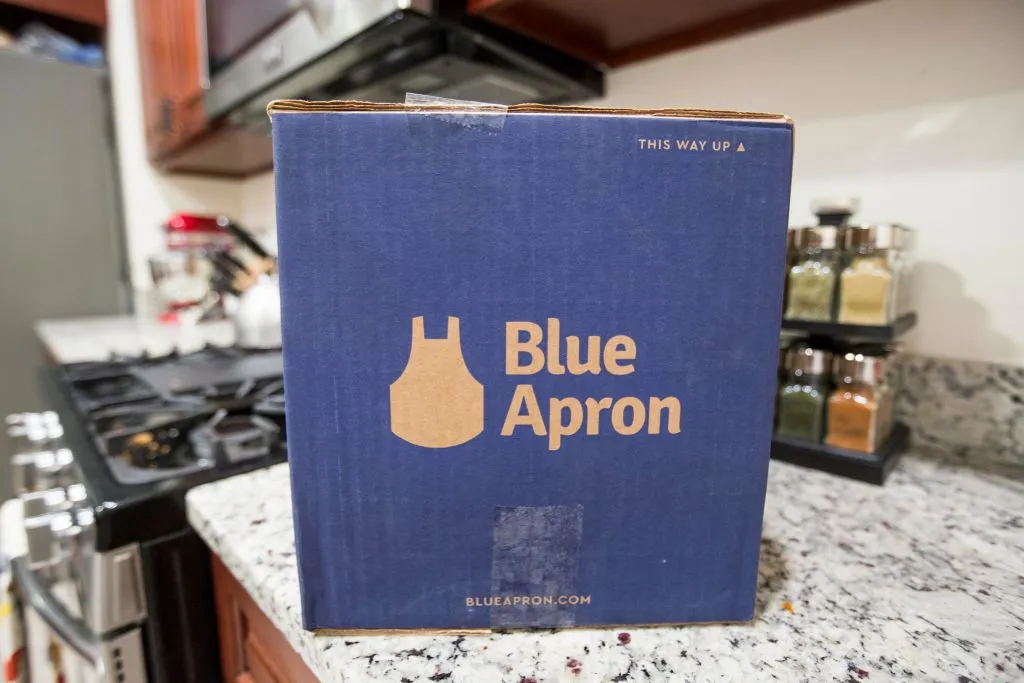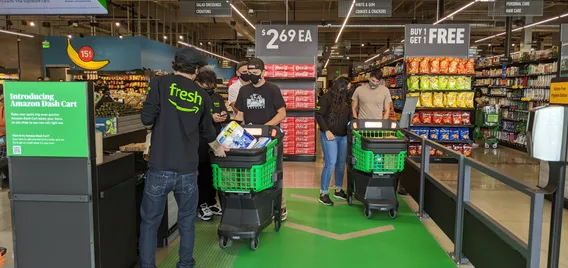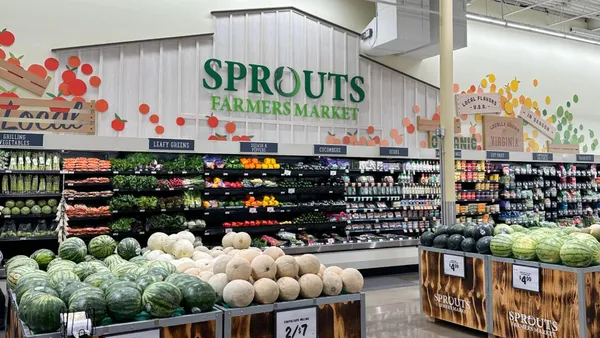The Friday Checkout is a weekly column providing more insight on the news, rounding up the announcements you may have missed and sharing what’s to come.
Less than a week into 2023, discount grocers appear to be the ringleaders of the grocery industry, especially after the toll inflation took on shoppers in 2022.
Three major grocery discounters — Aldi, Lidl and Grocery Outlet — have continuously held their own as many traditional grocers struggled against pandemic pressures, supply chain disruptions and, most recently, inflation.
The majority of grocers saw a decline in store visitation from June to October year-over-year, but Aldi and Grocery Outlet experienced a significant increase in foot traffic during that period, according to Placer.ai data cited in a recent Coresight Research report.
Parallel to this increase in store visitation is consumers spending more time than ever shopping at these discount grocery stores. The report noted that the proportion of store visits lasting from 30 minutes to an hour increased as the year went along, indicating discount grocers are attracting larger baskets as shoppers turn to them to purchase their full grocery list.
Discount grocers continue to take strides in ensuring their shoppers know they can be relied on for nearly all grocery needs. In November, Aldi and Lidl rolled out offerings for affordable Thanksgiving dinner essentials in an effort to support inflation-stricken consumers.
And these efforts are being noticed.
Aldi was ranked as the most trusted discount and small format grocer in Brandspark’s recent Most Trusted Awards survey, while also being listed alongside Walmart and H-E-B as most trusted for affordability. Grocery Outlet also received recognition, listed by Brandspark as the most trusted discount grocery retailer in the West.
These three major grocery discounters also all kept up a steady pace of store growth over the last few years. Aldi, in particular, has hit a stride with an average of 95 stores per year opening from September 2018 to September 2022, per Coresight. As of September, Aldi has 2,190 locations in the U.S.
Though not as grand as Aldi’s store opening uptick, Grocery Outlet maintained an average of opening 32 stores per year while Lidl averaged opening 30 stores per year over the same September 2018 to September 2022 period.
Inflation is the driving force behind these grocery discounters outpacing their traditional competitors, a conclusion both Coresight and Brandspark touch upon in their recent findings. And though inflation eased in the later months of 2022, shoppers are still reeling from months of stretching their budgets. Trading down is predicted to stay in the new year, meaning discount grocers will maintain their edge over traditional grocers and keep their growth momentum going as 2023 kicks off.

In case you missed it
It’s not a great time to be a meal kit company
Subscription meal delivery service Freshly is shutting down, according to its website, which notes that all Freshly gift cards will expire after Jan.17 — the last day customers can place orders. The company’s final shipping day will be Jan. 21.
The company laid off more than 450 employees — 138 at a New York facility and 329 in Arizona — according to labor notices in both states.
Meanwhile, Blue Apron has received a warning from the New York Stock Exchange (NYSE) that it is not in compliance with the exchange’s listing requirements, per an announcement at the end of December.
Companies on the exchange must have an average market capitalization of at least $50 million and maintain a minimum average closing price of at least $1 per share for a consecutive 30-day trading period. Blue Apron said it plans to notify the NYSE about ways it plans to come back into compliance with these requirements.
Albertsons’ dividend court date moved up
The ongoing court battle in Washington state over whether Albertsons can proceed with its $4 billion special dividend payment will have its next hearing sooner than expected.
Albertsons announced earlier this week that the state’s Supreme Court agreed with the grocer’s push for an expedited review of the temporary restraining order against the dividend. The court’s review has now been moved up to Tuesday, Jan. 17, from the previously set Feb. 9 date.
Washington Attorney General Bob Ferguson, who is seeking to halt the special dividend while the proposed Albertsons-Kroger merger undergoes regulatory review, appealed to the Washington Supreme Court after a state court denied his request for a preliminary injunction.
Albertsons has already notched a legal win over the dividend: The U.S. Circuit Court for the District of Columbia rejected a similar temporary restraining order request by the attorneys general of California, Illinois and Washington, D.C.
Weis Markets welcomes new marketing head
The grocery chain announced at the end of 2022 that it promoted Amanda Bauman from manager of digital marketing to director of marketing, filling the role that was held by Maria Rizzo. Rizzo was recently promoted to vice president of marketing and advertising for the Penssylvania-based grocer.
Bauman has been with Weis Market since 2003 and previously oversaw the development and launch of online shopping and an upgrade of the Weis shopping app. She also worked on the company’s growing e-coupon program. Now, she will head up the grocer’s loyalty marketing, data analytics, social media and digital marketing programs.
The grocer is the latest to recently announce marketing department changes, following Sprouts Farmers Market’s hiring of restaurant veteran Alisa Gmelich as its chief marketing officer.

Number of the week: 18,000
This is the approximate number of employees Amazon is laying off in its retail business after a review of its operations, the company’s CEO Andy Jassy told employees Wednesday. This number includes layoffs confirmed in November and will consist primarily of employees in Amazon stores as well as its people, experience and technology divisions.
This scale of downsizing is surprising coming from the e-commerce giant, especially following “a particularly frenzied expansion” during the pandemic, GlobalData Managing Director Neil Saunders told Retail Dive.
What’s ahead
Albertsons Q3 earnings
Albertsons is set to release its Q3 earnings on Tuesday. However, as it did last quarter, the grocer will not host a call or provide a financial outlook in light of the ongoing acquisition deal with Kroger. The grocer’s Q2 results released in October surpassed Wall Street estimates and, overall, proved ongoing strength post the merger announcement. For that quarter, Albertsons saw net sales climb 8.4% year-over-year to $17.9 billion and identical sales growth increase 7.4%, driven by retail price inflation. The grocer credited such a strong earnings report on the impact of inflation as well as its customer loyalty push.
December inflation numbers
Grocery inflation in November came in at its lowest level since May, marking the third consecutive month of year-over-year declines in price growth. The Consumer Price Index figures for December will be released on Thursday and will determine if inflation will decline for a fourth month.











